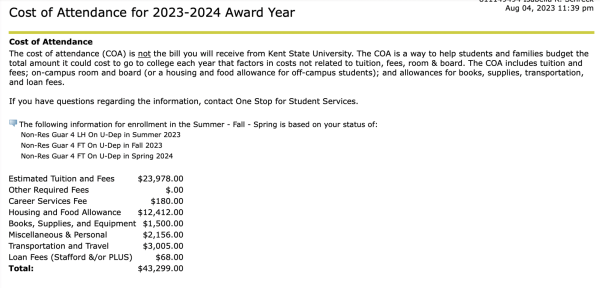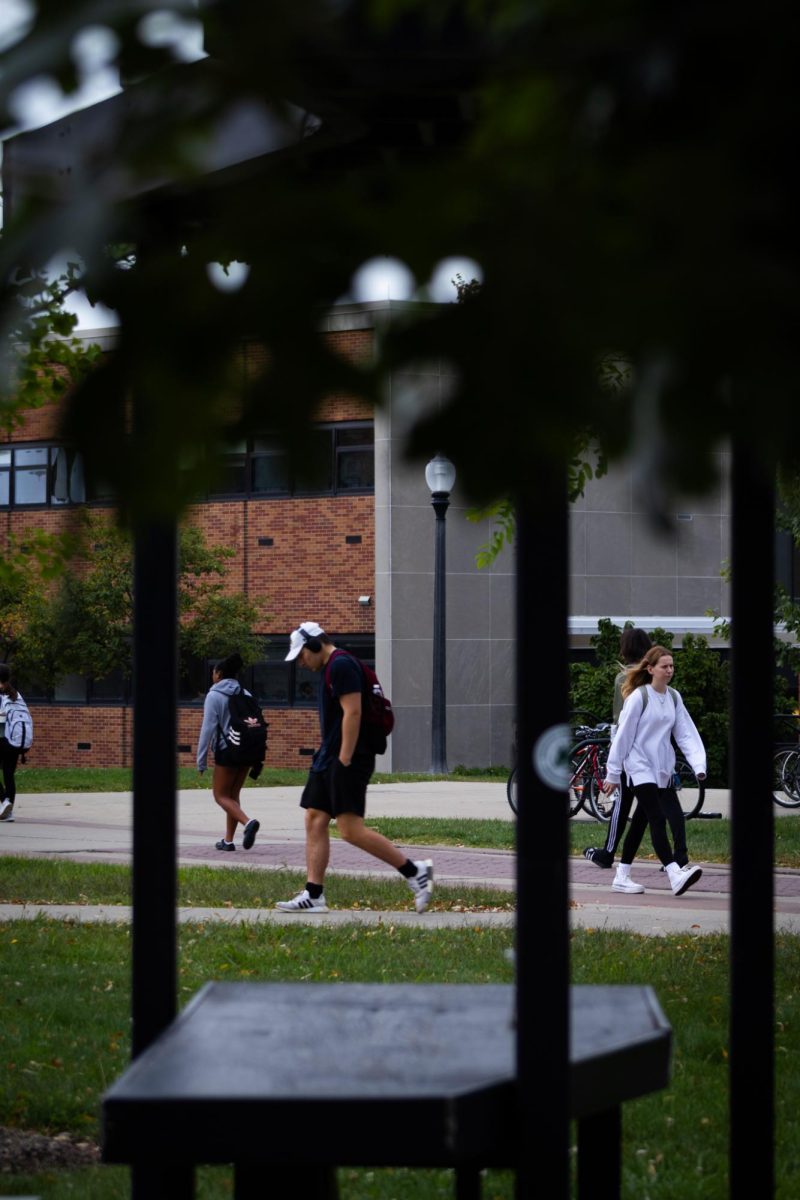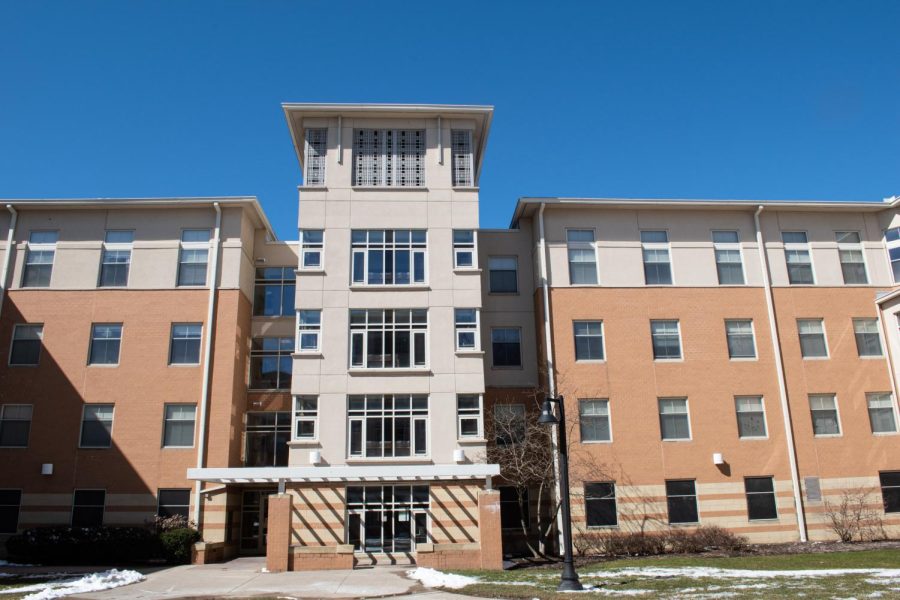White House Press Secretary Karine Jean-Pierre and Communications Director Ben LaBolt held a campus press briefing Monday afternoon to discuss topics relevant to college students like college affordability, mental health and climate change. Only student media from respective colleges across the country were in attendance.
“Starting with college affordability, President Biden understands the importance of a higher education,” LaBolt said. “It’s got the power to unlock doors of opportunity.”
LaBolt initially focused on the $117 billion in federal student loan forgiveness that the Biden administration already canceled. The debt forgiveness focuses on not only recent college graduates but people who have worked in public service after graduation in the Public Service Loan Forgiveness Program.
“Historically, those programs haven’t worked very well and people who were supposed to be getting credit towards getting their loans forgiven for spending time in those areas didn’t get them,” LaBolt said. “Since [Biden] came to office, he’s made those programs work a lot better, and we’ve gone from a few 100 people getting their loan forgiveness under that program to tens of thousands.”
While another broad debt relief program announced by the Biden administration was struck down by the Supreme Court last July, President Biden and Miguel Cardona, the U.S. Secretary of Education, announced they will be pursuing another path for forgiving student debt. The administration hopes to try again sometime next year, LaBolt said.

Computer screenshot of Kent State University’s Flashline website / The Kent Stater
Biden initiated the largest increase in Pell grants in over a decade, which is a form of need-based financial aid in which students are not required to pay anything back. Students nationwide are expected to receive these grants starting this fall.
LaBolt discussed the “Saving on a Valuable Education Plan,” also known as the “Save Plan.” He said this plan is the most affordable repayment plan ever.
“Four million borrowers are already enrolled in the Save Plan, including many of your school’s alumni,” he said.
The payment plans of the Save Plan depend on the borrower’s income and family size instead of their loan balance. If there is any remaining balance, it will be forgiven after a certain number of years, LaBolt said.
“This plan cuts borrower’s monthly payments to zero if they make less than $30,000 a year,” he said. “[If] they make more than $30,000 a year, this plan saves them about $1,000 a year relative to the other income driven payment plans.”
To prevent large monthly payments, the borrowers will see their undergraduate loan payments capped at 5% of their discretionary income. The balance of the loan will also not grow as a result of runaway interests, LaBolt said.
LaBolt said Biden’s loan relief plans have been met with challenges as it was announced Monday that the U.S. Supreme Court ruled against his original plan and is now facing pressure from House Republicans.
“This week here in DC is the extreme House Republicans’ threat to shut down the government,” LaBolt said. “That’s hurting the impact on programs across the board.”
With talks of the Supreme Court ruling against the loan relief plan, Jean-Pierre said even though the Supreme Court struck down affirmative action in June, it still fits in Biden’s plans for making college affordable.
Biden met with his board of advisors Monday to discuss HBCUs, or historically black college universities, to further his efforts of support for such colleges and universities, Jean-Pierre said.
“This is a president, who has committed to HBCUs, has also invested more than $7 billion in HBCUs, which is a historic amount,” Jean-Pierre said.
Outside of college affordability, climate change and Environmental Protection Agency (EPA) regulations were also discussed.
Since becoming the president, Biden has signed the Inflation Reduction Act, which White House Associate Communications Director Maria Michalos said is the largest investment in climate and environmental justice in history.
Michalos said that despite the Supreme Court’s restrictions concerning pollution from power plants, the EPA released a strong proposal to avoid more than 600 million metric tons of carbon dioxide within the next 10 years.
“While the Supreme Court may have eliminated some of the creativity, it did not take away EPA’s authority to really address some of these pollution burdens,” Michalos said. “[Biden] is laser focused on tackling climate change, using every legal tool to do just that.”
Biden has also established the American Climate Corps, a job training program designed to employ 20,000 young people to fight the climate crisis. Jobs will include training to deploy clean energy, implement energy efficient technologies and restore land.
Another issue Biden is working to address is a mental health strategy for his unity agenda which includes the Safe Communities Act, LaBolt said.
“A law called the bipartisan Safer Communities Act, which invests a billion dollars over the next five years to help young people access mental health care,” LaBolt said.
LaBolt said states have already begun using allocated funds by having schools hire 14,000 mental health professionals.
Biden is aware of the number of young people who depend on health insurance to access mental health care, LaBolt said.
“Many folks depend on their health insurance to access this care, including more than 2 million young people who have gained health insurance since [Biden] took office,” LaBolt said.
Biden’s administration also proposed a regulation about insurance for mental health that is still being evaluated.
“The administration has proposed a regulation that would strengthen requirements for insurers to provide access to mental health care in the same way they do for physical health,” LaBolt said.
LaBolt said the final part of Biden’s unity agenda is investing in the 988 national suicide and crisis hotline.
“The President understands the importance of this resource and he’s secured $200 million to help it better serve the people in crisis,” LaBolt said.
Jean-Pierre and LaBolt stressed throughout the campus briefing that Biden is addressing the concerns of college students and that their needs will be met as soon as possible.
“[Biden] hears you and that’s why he’s created a mental health strategy as part of his unity agenda,” LaBolt said. “He’s committed to creating a mental health system that works for everyone.”
Adriana Gasiewski is a staff reporter. Contact her at [email protected].
Kayla Gleason is a reporter. Contact her at [email protected].





